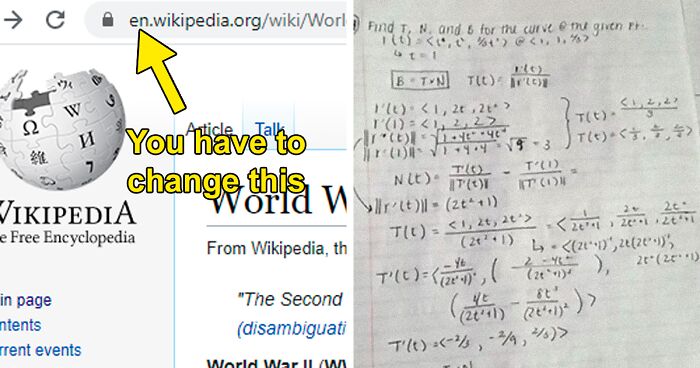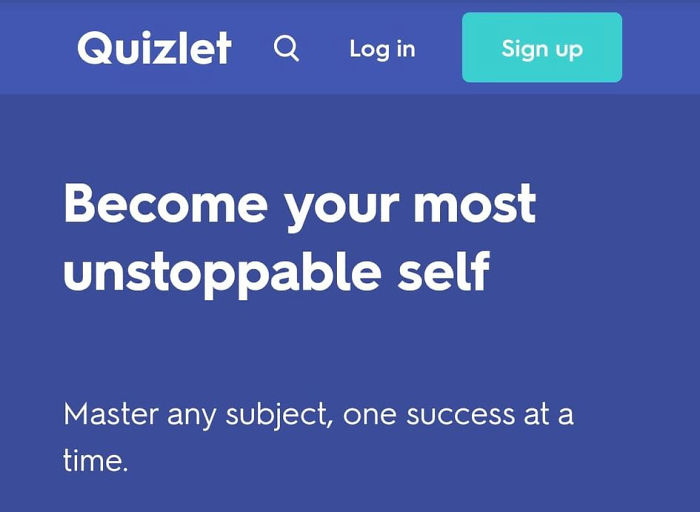Students never have enough time for studying. Especially if they're also working two jobs or have been partying since 2018. So they're trying to "hack" the system. Some are optimizing their Google searches, some are making the most out of non-profit Internet libraries but turns out, there's plenty of useful methods that actually work and can save people a lot of precious hours and energy when completing assignments or preparing for tests. Continue scrolling and check them out!
This post may include affiliate links.
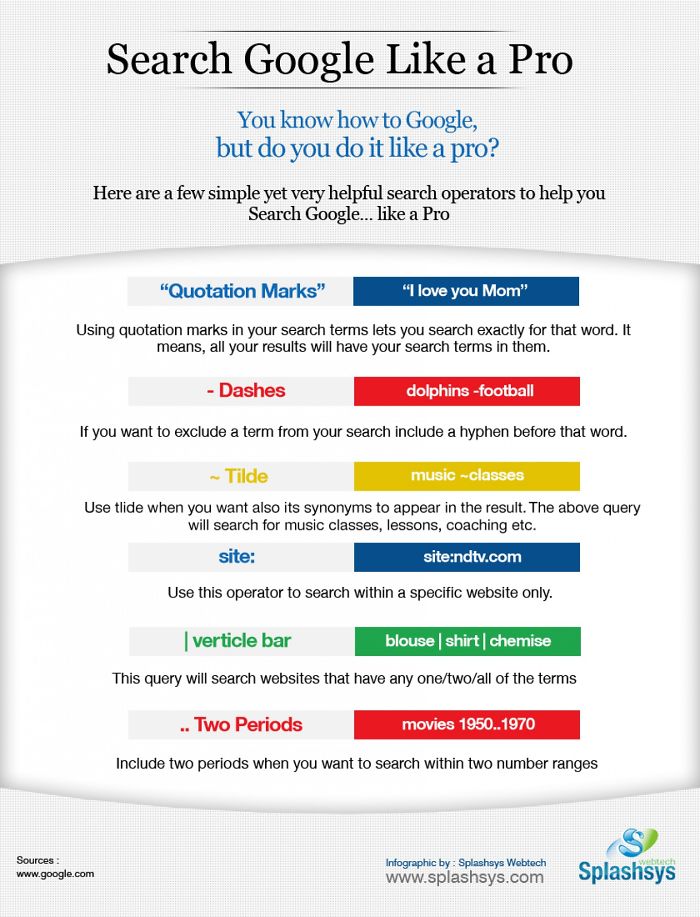 Save time when researching sources online by mastering the biggest search engine in the world; Google. Follow the tips in this image to find what you need at your fingertips
Save time when researching sources online by mastering the biggest search engine in the world; Google. Follow the tips in this image to find what you need at your fingertips
Insight Education, an organization that provides personalized and comprehensive guidance through every facet of the high school experience and college admissions process, acknowledges that studying can be tough. To make it easier, it suggests following a clear study schedule. "If you don't develop a study routine, you risk losing focus and hurting your performance in your classes," Insight Education warns. "Write out a study schedule in a notebook, and make it realistic! If you have band practice after school for an hour, then dinner with your family, it’s unlikely you’ll then want to spend 3 hours studying for a calculus test. Be kind to yourself and set realistic and achievable goals for your study schedule."
Next, try to make a goal for every study session. Just flipping through notes or the textbook is not very effective. Instead, set a concrete goal for each study session to gain the most from your homework, for example, reading a certain number of pages in the textbook or mastering a specific concept.
 Studying incentive: When you reach a gummy bear you get to eat it
Studying incentive: When you reach a gummy bear you get to eat it
That being said, be careful and avoid cramming. Sure, it can work sometimes, but the knowledge you gain from it is temporary. Cramming becomes especially problematic when you're working on tough assignments where the information is cumulative. Try your best to manage your time and start studying sooner rather than later. A last-minute revision is OK, but don't rely on it too much.
Also, make use of your weekends. Of course, it is a good time to unwind, but you also need to avoid rushing during the week. "Build some weekend study into your schedule, even if it's just an hour on Sunday afternoon. It's important to find a good balance, so you're still getting to see your friends and spend time with your family, but you're also starting the week off on a good foot," Insight Education advises.
 My classmate took up a strict 9-5 school schedule, right from the first semester. Every day, he'd work 9-5. He was either in class, working on homework, or studying if he got everything done. At 5pm, he'd pack up his stuff and was done for the day.
He had all his homework done way ahead of schedule and never had to pull all nighters or waste weekends on homework. He was never stressed out or anything like that because he'd spent time studying when he wasn't slammed with homework.
I could never manage it because I'd rather procrastinate and start 3 hours before it was due, but it seemed like the best way to do it.
EDIT: To answer the flood of questions: This was in computer programming. We did get projects estimated at like 60 hours a week later in the couse, but by then he was so far ahead of everyone else that he could start working on them as soon as they were assigned and knew the content so well that he still didn't have to work outside his core hours, while I was pulling multiple all-nighters in the lab trying to catch up. Yes, you might need more time based on your program, the point is to get into a routine and use your time effectively. He didn't have a job because school is affordable where I live (and we were in a co-op program where you work every other semester and can save up some money), but he did take contract work to do in the evenings/weekends for some cash and would have had every night and weekends to work if he wanted to do so.
My classmate took up a strict 9-5 school schedule, right from the first semester. Every day, he'd work 9-5. He was either in class, working on homework, or studying if he got everything done. At 5pm, he'd pack up his stuff and was done for the day.
He had all his homework done way ahead of schedule and never had to pull all nighters or waste weekends on homework. He was never stressed out or anything like that because he'd spent time studying when he wasn't slammed with homework.
I could never manage it because I'd rather procrastinate and start 3 hours before it was due, but it seemed like the best way to do it.
EDIT: To answer the flood of questions: This was in computer programming. We did get projects estimated at like 60 hours a week later in the couse, but by then he was so far ahead of everyone else that he could start working on them as soon as they were assigned and knew the content so well that he still didn't have to work outside his core hours, while I was pulling multiple all-nighters in the lab trying to catch up. Yes, you might need more time based on your program, the point is to get into a routine and use your time effectively. He didn't have a job because school is affordable where I live (and we were in a co-op program where you work every other semester and can save up some money), but he did take contract work to do in the evenings/weekends for some cash and would have had every night and weekends to work if he wanted to do so.
Dude I was a med student. We had classes till 5. We had to read what was done that day and prepare for the other day even without extra projects given sometimes. I could never work in college. It's insane. No body with my course could keep regular hours. It's impossible in my course an dcountry
Additionally, you can try creating a study group. However, if you choose to do so, pick your study buddies wisely. "Make sure this is someone you can actually get stuff done with. Also be cautious with including too many people in your group, as this can make it easier to get distracted. You want to study around people who are motivated to get through their work, and also happy to talk through problems and concepts if you need a hand figuring something out."
As helpful as all of these tips and hacks are, remember to be flexible with your study techniques. Don't be afraid to mix it up. Eventually, you will find what's best for you.
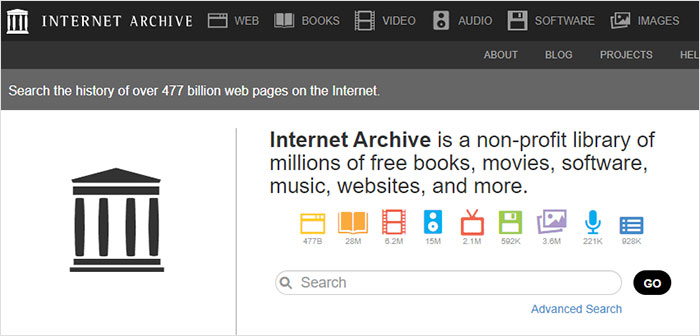 Internet Archive is a nonprofit library with millions of free books, movies, music, and more.
Internet Archive is a nonprofit library with millions of free books, movies, music, and more.
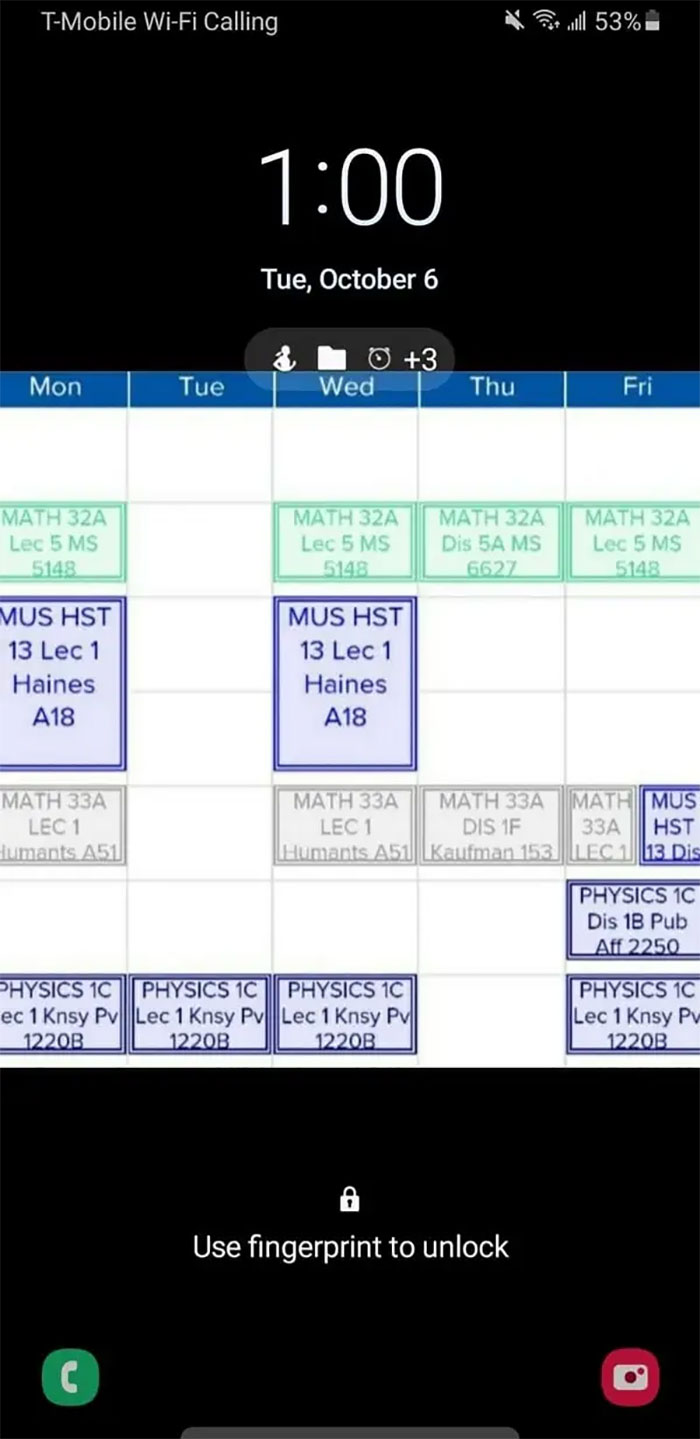 Set a screenshot of your class schedule as your lock screen.
You'll always know where you're supposed to go (esp when you're running late!), and you won't have to wait impatiently for your schedule to load in the building with shoddy signal as you try to figure out which room number you need to be at.
Set a screenshot of your class schedule as your lock screen.
You'll always know where you're supposed to go (esp when you're running late!), and you won't have to wait impatiently for your schedule to load in the building with shoddy signal as you try to figure out which room number you need to be at.
 Talk with your professors after class (especially if you really enjoy the subject) and go to office hours!
You could introduce yourself and ask questions. You don't have to need homework help — you could get to know your professors and a better understanding of the material. Plus, professors have to hold office hours, so even if nobody shows up, they'll be sitting there...waiting. It's an easy opportunity to network (your professors could help you land an internship or job!).
Talk with your professors after class (especially if you really enjoy the subject) and go to office hours!
You could introduce yourself and ask questions. You don't have to need homework help — you could get to know your professors and a better understanding of the material. Plus, professors have to hold office hours, so even if nobody shows up, they'll be sitting there...waiting. It's an easy opportunity to network (your professors could help you land an internship or job!).
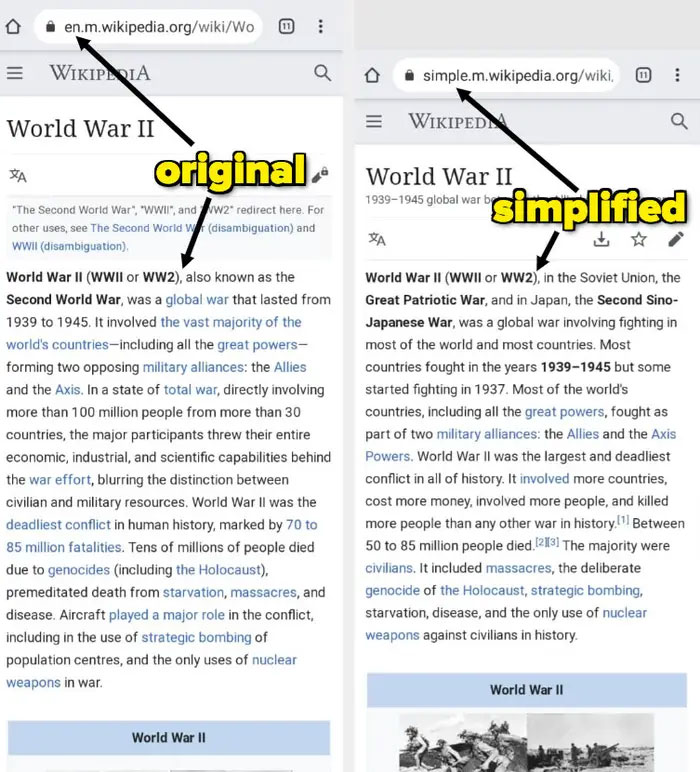 When using Wikipedia, replace the "en" in the URL with "simple", and you'll get a shorter, simpler version of the article that you can easily skim.
When using Wikipedia, replace the "en" in the URL with "simple", and you'll get a shorter, simpler version of the article that you can easily skim.
OK, but this works only if an article written in simple English already exists, right? No AI will make a simple language version of the Wikipedia text for you. Btw, you can also click the "Language" button (mobile version) or go through the available Languages on the left side of the screen (desktop version) to look up simple English version, though replacing en with simple in the URL is probably a bit faster.
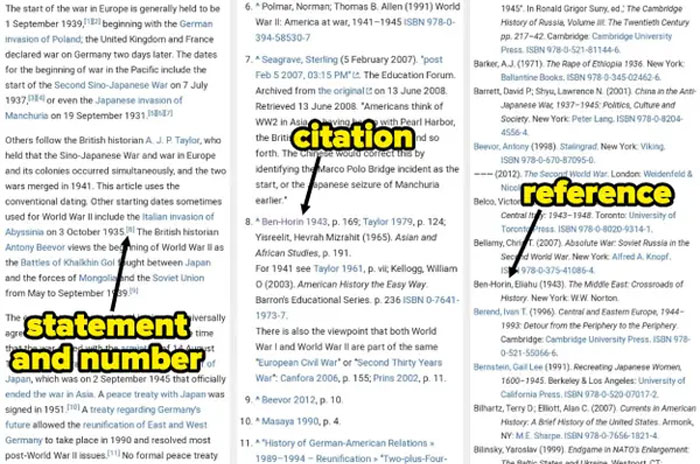 If you're not allowed to cite Wikipedia as a source, remember that all the citations and references live at the bottom of the entry.
If you're not allowed to cite Wikipedia as a source, remember that all the citations and references live at the bottom of the entry.
 If your roommate won't turn off their phone alarm, call their phone to stop the alarm.
They may have to be out of bed, but you sure don't. And it beats calling their name until they hit the alarm.
If your roommate won't turn off their phone alarm, call their phone to stop the alarm.
They may have to be out of bed, but you sure don't. And it beats calling their name until they hit the alarm.
 Need literature? Search Project Gutenberg for over 60,000 free eBooks. You don't need any app, and you can Ctrl+F when you zone out during class.
Need literature? Search Project Gutenberg for over 60,000 free eBooks. You don't need any app, and you can Ctrl+F when you zone out during class.
Project Gutenberg is a great collection of free books, but keep in mind that many of the books (especially the scientific ones) may not be up to date with the latest research, because they could have been made available for free download only because their authorship has expired (which could be up to 70 years depending on author´s home country law).
 You can change the auto-save time to 1 minute in Microsoft Word & Excel. It might save you from losing a lot of progress.
You can change the auto-save time to 1 minute in Microsoft Word & Excel. It might save you from losing a lot of progress.
 Try a "Bible-safe" gel highlighter if your color coding is bleeding through your textbook pages!
Try a "Bible-safe" gel highlighter if your color coding is bleeding through your textbook pages!
 Get enough sleep.
Seriously. I know it's hard. I know there's not enough hours in the day. But if you're gonna cut anything, it shouldn't be sleep.
Get enough sleep.
Seriously. I know it's hard. I know there's not enough hours in the day. But if you're gonna cut anything, it shouldn't be sleep.
Before exam make a copy of all the material you have to know, but change it in the way you would explain it. It helps A LOT to learn the subject.
That's why study groups always worked for me, when you have to explain something or answer a difficult question you know right away where your own weaknesses lie.
 If you don't know how to study, or have a hard time getting yourself to do homework: Get a friend to buddy with. My ADHD ass can't study to save my life, but if my friend is in the room concentrating on that sh**, I feel like I don't want to be left out, and I'll buckle down so we're on the same page. If you can't manufacture executive function, peer pressure is fine too
If you don't know how to study, or have a hard time getting yourself to do homework: Get a friend to buddy with. My ADHD ass can't study to save my life, but if my friend is in the room concentrating on that sh**, I feel like I don't want to be left out, and I'll buckle down so we're on the same page. If you can't manufacture executive function, peer pressure is fine too
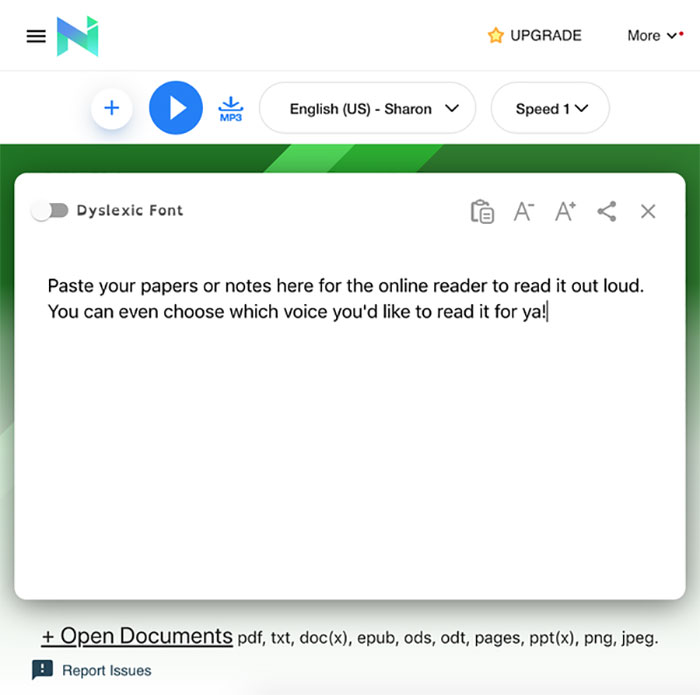 Use a text-to-speech online reader to help you proofread your papers — OR to read notes back to you as you study!
If you're editing your paper, you'll be able to catch mistakes or make improvements more easily when "someone" else is reading it out loud.
Use a text-to-speech online reader to help you proofread your papers — OR to read notes back to you as you study!
If you're editing your paper, you'll be able to catch mistakes or make improvements more easily when "someone" else is reading it out loud.
But text to speech isn't exactly well developed. It's grating and monotonous. That's why we get audio books instead of just telling Google to read our pdf.
 Use a scanning app on your phone if you're taking pictures to submit handwritten assignments online.
If your handwriting is questionable and the picture quality is bad, your grader will not be a happy camper. A $5 scanning app could make a big difference! Popular scanning apps include Scanner Pro (for iOS) and Scanner App (for Android).
Use a scanning app on your phone if you're taking pictures to submit handwritten assignments online.
If your handwriting is questionable and the picture quality is bad, your grader will not be a happy camper. A $5 scanning app could make a big difference! Popular scanning apps include Scanner Pro (for iOS) and Scanner App (for Android).
 Don't buy a textbook unless you know that you actually need it. And if you do, rent your textbooks instead of buying them. It's cheaper and you don't have to deal with storing or selling them off after you're done.
Don't buy a textbook unless you know that you actually need it. And if you do, rent your textbooks instead of buying them. It's cheaper and you don't have to deal with storing or selling them off after you're done.
Export and submit your paper as a PDF (instead of a Word doc) so that you don't have to worry about the formatting or the file itself.
 If you have lazy teachers, google a direct quote from a worksheet or assignment and you can sometimes find teaching resources and answers online
If you have lazy teachers, google a direct quote from a worksheet or assignment and you can sometimes find teaching resources and answers online
 Browse the textbook before the lecture, or at least skim the introduction and the section headings. It's a lot easier to remember information if you walk into the classroom with a little bit of context.
Browse the textbook before the lecture, or at least skim the introduction and the section headings. It's a lot easier to remember information if you walk into the classroom with a little bit of context.
Oh yes, structure is helpful to me. I would keep asking myself, why are we discussing this only to find out later how it all fit together.
 Watch a Documentary on the Topic
Documentaries are an entertaining way of compacting an entire story into a short timeframe. This will help you remember key details from a story plus you may even get extra credit for mentioning that you took the initiative and watched a film about the topic!
Watch a Documentary on the Topic
Documentaries are an entertaining way of compacting an entire story into a short timeframe. This will help you remember key details from a story plus you may even get extra credit for mentioning that you took the initiative and watched a film about the topic!
 Volunteer to answer your professor's questions and keep your camera on if you can during online classes.
Participation is always appreciated, but especially now when professors are lecturing into a camera. If you actively show your face and participate, your professor will more likely remember you, too.
Volunteer to answer your professor's questions and keep your camera on if you can during online classes.
Participation is always appreciated, but especially now when professors are lecturing into a camera. If you actively show your face and participate, your professor will more likely remember you, too.
My teachers tell me to turn off video to save bandwidth so Zoom is less laggy.
 Reward yourself when you complete assignments ahead of schedule.
Procrastinating is so, so tempting, but try to Pavlov yourself by getting a treat when you finish things ahead of time, so you can build healthy habits instead.
Reward yourself when you complete assignments ahead of schedule.
Procrastinating is so, so tempting, but try to Pavlov yourself by getting a treat when you finish things ahead of time, so you can build healthy habits instead.
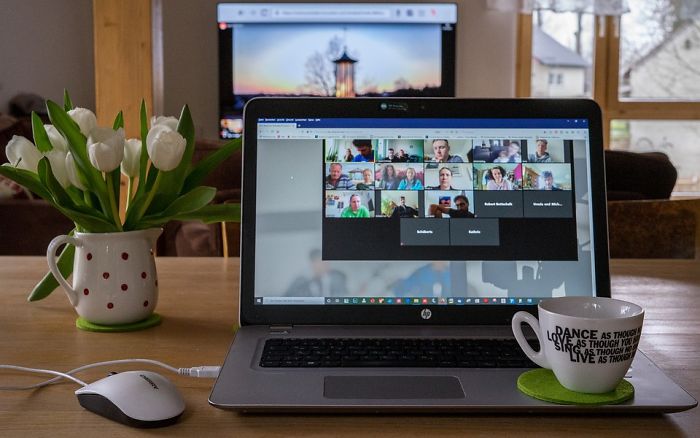 If your school has gone online due to COVID-19, consider completing your general requirements online through a local community college to save money.
Make sure the credits transfer, of course.
If your school has gone online due to COVID-19, consider completing your general requirements online through a local community college to save money.
Make sure the credits transfer, of course.
I took all of my general requirements at a local community college when I was in High School. This saved me time and money when I got to University. It was wonderful. I had my first undergrad degree at 19 and no one where cares where you took English Composition.
 Download any material your professor sends through Google Classroom directly to your device, instead of just adding it to your Drive.
Download any material your professor sends through Google Classroom directly to your device, instead of just adding it to your Drive.
As someone who just graduated college, do yourself a favor and actually go to class. You’re paying for the chair (if you’re in the US) and there is research on a correlation between greater absences= greater likelihood to fail a course. I know you hate the class, but go. I might literally be begging.
I liked to hear the questions that arose. It got my mind working in new ways that just reading didn't do necessarily.
Google by file type. For example, if you're looking for a PDF, type "filetype:pdf" before the name of whatever book or document.
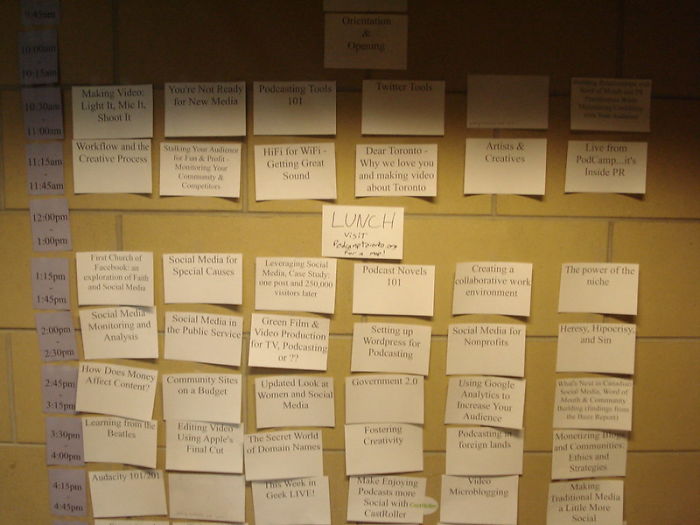 Schedule your classes back-to-back so you can get through them all in one go. You'll be less likely to skip if you don't have that two-hour block between O-Chem and that general elective you're taking this semester.
Schedule your classes back-to-back so you can get through them all in one go. You'll be less likely to skip if you don't have that two-hour block between O-Chem and that general elective you're taking this semester.
Disagree strongly. This is totally a personal thing. If I had to endure five straight hours of classes in college, I would’ve burned the heck out. Also that would’ve meant not getting to each lunch.
Sleep more than you study Study more than you socialize Socialize as much as possible
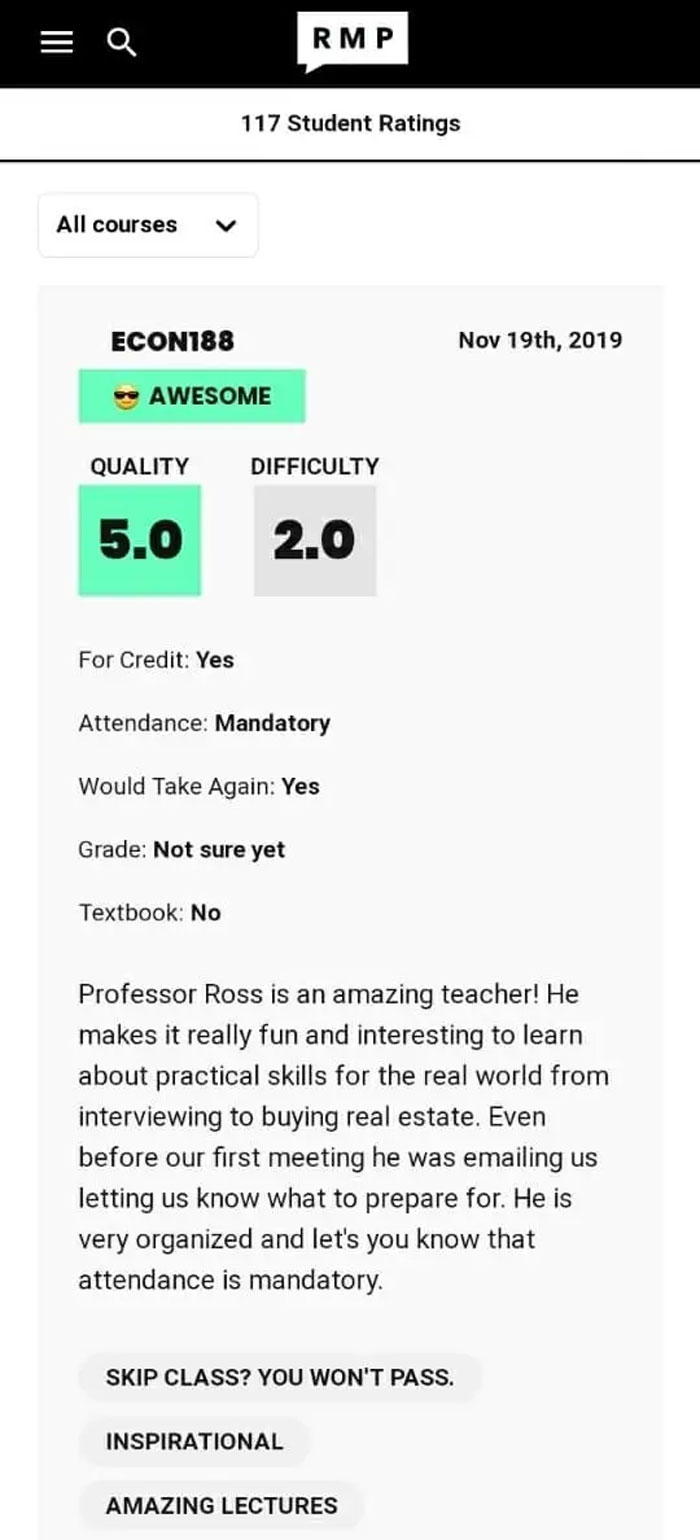 Read reviews of a professor on Rate My Professors before you register for a class. You can search for a professor by name or by your school. This is great to make sure you don't end up hating (or failing) a class you'd otherwise love! Each review has a percentage of how many reviewers would take the class again, a rating of the professor's difficulty and one for quality, comments, and more.
Read reviews of a professor on Rate My Professors before you register for a class. You can search for a professor by name or by your school. This is great to make sure you don't end up hating (or failing) a class you'd otherwise love! Each review has a percentage of how many reviewers would take the class again, a rating of the professor's difficulty and one for quality, comments, and more.
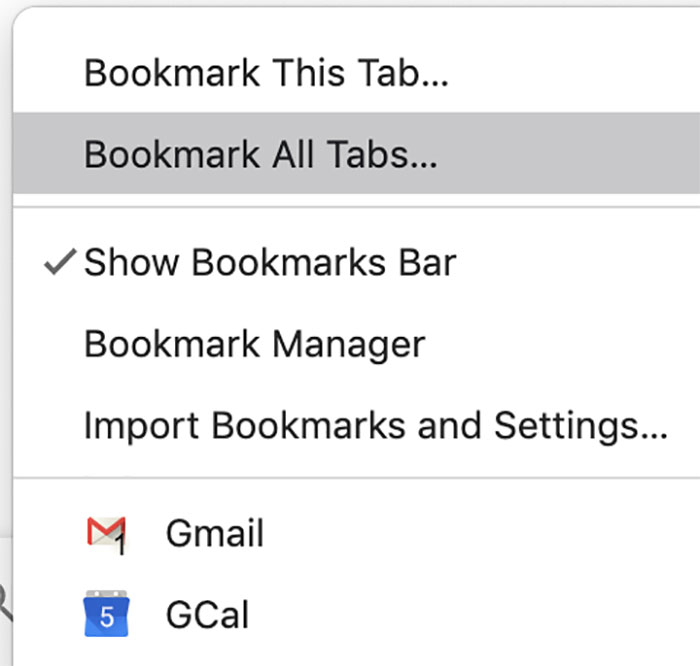 Bookmark all open tabs in one click so that you can close out of everything and use your computer without a gajillion tabs running.
Click to expand your menu bar, hover over "Bookmarks," and "Bookmark All Tabs." Your laptop will thank you, too.
Bookmark all open tabs in one click so that you can close out of everything and use your computer without a gajillion tabs running.
Click to expand your menu bar, hover over "Bookmarks," and "Bookmark All Tabs." Your laptop will thank you, too.
 If you need to participate in group discussion but aren't sure about the material, ask intelligent questions instead of trying to answer what you don't get - it'll buy you time and you'll still be participating.
See the professor/ta during their office hours if you need extra help understanding something. No one comes to office hours and they're usually really happy to help.
If you need to participate in group discussion but aren't sure about the material, ask intelligent questions instead of trying to answer what you don't get - it'll buy you time and you'll still be participating.
See the professor/ta during their office hours if you need extra help understanding something. No one comes to office hours and they're usually really happy to help.
Take notes even if you never look at them later. Take notes while you complete your readings. It'll help cement things in your brain to summarize and paraphrase the key points of the content. Start early. Scan what's coming up so you know approximately how much time the next reading/chapter/assignment will take and plan your schedule accordingly. Don't let yourself be stuck rushing/cramming/all-nighting anymore than you need to. Don't let the fear of a looming task freeze you into procrastination. When it comes time to midterms and finals, recognize when you've done all that you can. Cramming isn't going to achieve much for you, and there always comes a point where if you keep going you're going to freak yourself out and you're not gaining anything. Use that time to relax and rest so you're alert and ready come the exam.
I do this. All extremely detailed and handwritten (because it's better for long-term memory building) not only have I gotten extremely well at cursive, but I have over 1000 pages of handwritten whole pages worth of notes for every single core /science in high school!
You've got to play the meta-game. If your lazy and unorganized like me, you won't have time to properly study for everything and complete every assignment. That's when you look at the grade distribution and start with the items that are worth the most.
 Find time to get some exercise in. All of that grab n go/fast food catches up to you fast I got fat as f**k in college and have since lost all that weight. I wish I made time to at least squeeze in a 30 min workout every other day.
Find time to get some exercise in. All of that grab n go/fast food catches up to you fast I got fat as f**k in college and have since lost all that weight. I wish I made time to at least squeeze in a 30 min workout every other day.
For math/physics majors: learn how to use LaTeX early -- it will save you a ton of time in the long run, and you'll need to know it for grad school anyway. I personally recommend LyX for problem sets, since it helps to see what you're writing live. Also, learning how to use Mathematica really well saved me countless times when I wasn't smart enough to do the math by hand.
If you’re nervous about presenting something or speaking out loud because you’re forced to, just know that the majority of students around you feel the same way as you if not worse! That always helped me get over the fear of talking out loud.
I don't know why, but holding a pen in my hand during the presentation helped a lot. I would just hold it and wawe it around while explaining something. Probably because it gave me something to do with my hands so i didn't have to think if i looked awkward. Maybe it would help somebody else, too.
Wikipedia not working? Type 0 in front of the W and hit enter. Now you have Wiki-Zero! All Wikipedia format, just on a different site.
Doesn’t seem to work anymore: https://en.m.wikipedia.org/wiki/Wikipedia_Zero
Record lectures on your phone and listen to them while studying for tests. So many times in lectures you get so caught up in taking notes that you completely miss things the professor says. I've picked up on so many things that I totally missed in the notes but heard the professor say it in the recording. Also takes pressure off you to take crazy fast notes.
Keep your student ID card! Oftentimes, lots of businesses will honor the college discount if you have the card on you :) Source: graduated back in 2015, I still use it to get that movie ticket discount at the local theatre
i do this too! someone asked me about it once, and i said "if i'm still paying student loans, i should still get student discounts!" and they laughed and honored it
Say you have an 8-page paper due, but you've only written about 7 pages. Use the find-and-replace function in your word processor to replace all periods with slightly larger ones. So if your paper specifies 12-pt font, change the periods to 14-pt. This will likely get you to your 8 pages, and is very hard to detect in a hard-copy. Pro tip: DO NOT use this trick if your papers are submitted electronically--your teacher can much more easily spot the change and then you're busted.
Put your phone away completely when studying. The biggest issue I had in school was getting distracted by Twitter, Facebook, Reddit, text messages, emails, etc. There was always something going off and I’d spent 10 minutes in my phone, out it down, get a notification and waste another 10 minutes.
I'll play devil's advocate here. Some people return to school years later and may not remember these tips from their high school days. Or they may have gone to high school a long time ago. Personally, I don't advocate making knowledge of these tips a requirement for entry to college or university, but if you run a school, you're free to reject candidates strictly on this basis.
Load More Replies...and not gain enough knowledge to go to university to get a good job? your choice...
Load More Replies...I'll play devil's advocate here. Some people return to school years later and may not remember these tips from their high school days. Or they may have gone to high school a long time ago. Personally, I don't advocate making knowledge of these tips a requirement for entry to college or university, but if you run a school, you're free to reject candidates strictly on this basis.
Load More Replies...and not gain enough knowledge to go to university to get a good job? your choice...
Load More Replies...
 Dark Mode
Dark Mode 

 No fees, cancel anytime
No fees, cancel anytime 






